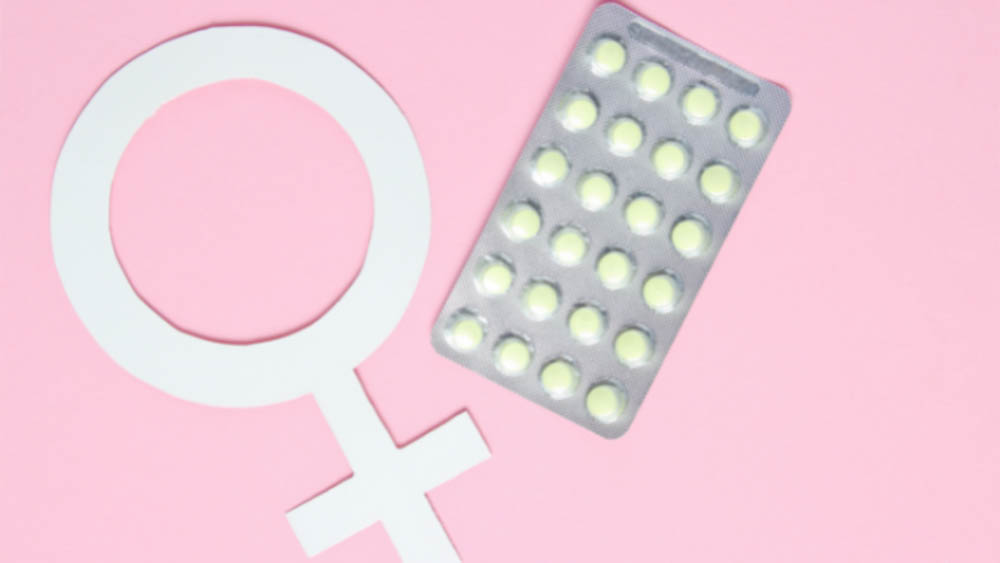Estrogen Therapy: Is It Safe And Do I Need It?
Don’t let misleading medical literature cloud your judgment when it comes to feminine hormonal health. While all medical treatments come with some risks, natural or bio-identical estrogen therapy is generally safe and highly beneficial—especially for bone and cardiovascular health.
And if you need proof? We have got the facts to back it up.
What is Estrogen Therapy?
Estrogen therapy has long been a topic of debate in the medical community, with concerns about its safety and effectiveness sparking controversy over the years. Much of the fear surrounding estrogen therapy stems from misleading or flawed studies, leading many women to forgo treatment that could benefit their health.
In July 2002, the Women’s Health Initiative (WHI) Study released the results of a landmark hormonal treatment trial. The study was abruptly terminated due to reported adverse effects, including heart disease, blood clots, and strokes. However, the study’s main drug, Prempro, combined synthetic estrogen with synthetic progesterone, which may have contributed to the negative outcomes.
Within months, nearly half of U.S. women on estrogen therapy—including those using natural or bio-identical estrogen—discontinued treatment. Many of these women had undergone hysterectomies and were no longer producing sufficient estrogen, which is important for maintaining hormonal balance and overall health.
A 2013 study published in the American Journal of Public Health shed new light on the consequences of avoiding estrogen therapy. Researchers found that 91,610 women, ages 50-59, had died prematurely due to the unnecessary fear surrounding estrogen therapy.
The study concluded that natural or bio-identical estrogen offers significant health benefits, including:
- Protecting cardiovascular health by inhibiting the development of atherosclerosis and arterial plaque buildup.
- Supporting bone health, reducing the risk of osteoporosis and fractures.
- Maintaining optimal blood flow, reducing the likelihood of heart disease.
What is Estrogen?
Estrogen is one of the primary female hormones (besides progesterone) produced in the ovaries and found in small amounts throughout the body. Estrogen levels fluctuate during a woman’s menstrual cycle, but these minor variations don’t usually present an alarm in most women.
It should be noted that men, too, produce estrogen (just as women also produce testosterone), but in minimal amounts. Typically, the body has an intrinsic way of balancing its crucial processes.
Estrogen is responsible for:
- Sexual development and secondary sex characteristics in pubescent girls
- Growth of uterine lining during the menstrual cycle and at the beginning of pregnancy
- Breast changes in sexually developing girls and pregnant women
- Regulating bone and cholesterol metabolism
- Regulating hunger/appetite, body weight, glucose metabolism, and insulin sensitivity
Symptoms of low estrogen include:
- Painful sex due to lack of lubrication produced in the vagina
- Increase in UTIs
- Irregular/absent periods
- Hot flashes
- Breast tenderness
- Increase in headaches/migraines
- Depression/mood irregularities
- Brain fog/difficulty concentrating
- Unexplained lethargy/lack of motivation
Another noteworthy symptom of low estrogen is the fracture or breaking of bones due to decreased density, as estrogen directly works with calcium, vitamin D, and other minerals to help keep bones resilient.
If left untreated, chronic estrogen deficiency can lead to infertility. Low estrogen in women over 40 years of age indicates menopause is approaching and will continue to slow its production until menopause has been reached.
Causes of Low Estrogen in Women Under 40
Women under 40 who experience low estrogen production are not uncommon. The following causes can contribute to slower than normal estrogen production in younger women:
- Excessive dieting/exercise
- Battling eating disorders, such as anorexia
- Dysfunctional pituitary gland
- Chronic kidney disease
- Turner Syndrome (a genetic condition caused by an abnormality of one of the sex chromosomes)
Estrogen Therapy
Estrogen therapy is recommended to help prevent bone loss, cardiovascular disease, and other hormonal imbalances. While the actual dosage will depend on a woman’s estrogen level severity, the FDA recommends the lowest possible dosage for the shortest possible amount of time due to cancer risk. Estrogen therapy can be administered orally, vaginally, topically, or via injection.
Most women experience optimal results after 1-2 years of estrogen therapy. Estrogen therapy can relieve the common disruptive symptoms of menopause, such as hot flashes, insomnia, bone loss, painful intercourse, etc. For women under age 40, estrogen therapy can reverse irregular periods, infertility, and dermatological disorders. Reported side effects of estrogen include:
- Bloating
- Breast tenderness/swelling
- Dense breast tissue
- Vaginal bleeding
- Blood clots
- Heart attack
- Stroke
Do I Need Estrogen? Diagnosing Low Estrogen
Diagnosing low estrogen is not a one-size-fits-all process—it requires a comprehensive evaluation and a discussion of your symptoms and medical history with a qualified physician.
Steps in the Diagnosis Process:
- Symptom Assessment: Be prepared to discuss any problematic symptoms you’re experiencing.
- Medical History Review: A thorough review of your family’s medical background can help identify potential risk factors.
- Full-Body Examination: Your physician will conduct a physical assessment to check for any signs of hormone imbalance.
- Hormone Testing: Blood work will be performed to measure your current hormone levels.
- Pituitary Function Test: In some cases, a pituitary hormone test may be conducted to rule out underlying conditions affecting hormone production.
- Brain Scan (if necessary): If abnormalities are suspected, imaging tests may be recommended.
Choosing the Right Physician
Working with a doctor who specializes in hormone and endocrine health ensures you receive accurate testing and a treatment plan tailored to your needs. The right approach will help you take decisive action and make informed choices about your hormonal well-being.
Considering Lipedema Revision Surgery?
If you’re exploring lipedema revision surgery, Dr. Jaime Schwartz offers expert evaluations and consultations. During your visit, he will assess your current physical condition, medical history, and any past lipedema surgeries to determine the best course of action.
To schedule a consultation, contact our office—our compassionate and knowledgeable team is always here to assist you. We look forward to helping you on your journey to better health!

